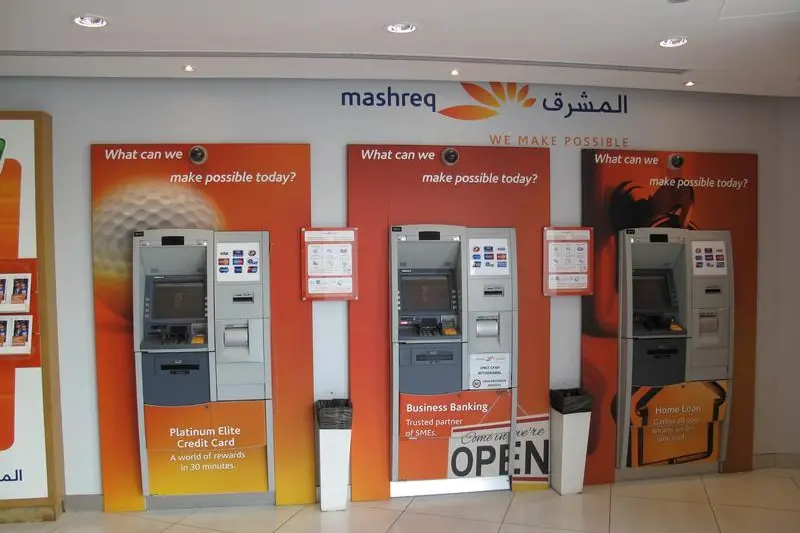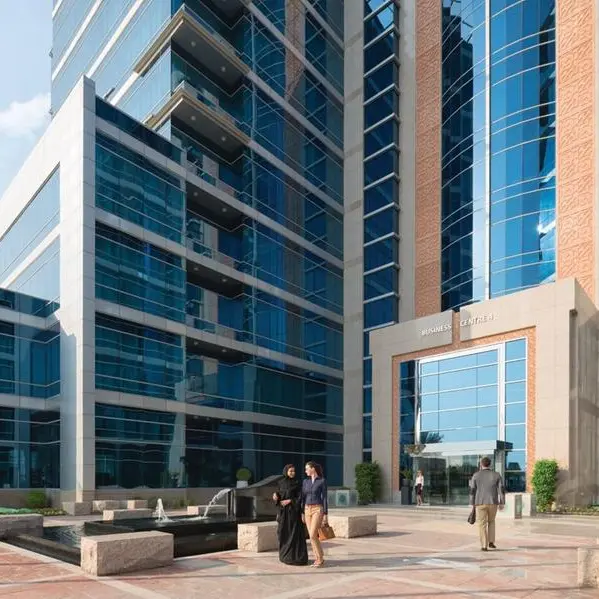PHOTO
The digitisation drive among banks to use new technologies to replace routine roles with apps and artificial intelligence (AI)-enabled technology is already underway in the United Arab Emirates, with Standard Chartered and Mashreq Bank among the firms to lay off staff as a result, but its impact will take some time to be felt throughout the sector, experts have told Zawya.
Standard Chartered confirmed to Reuters that it was cutting jobs in its retail division as more customers migrate to digital services.
Meanwhile, Zawya understands that Mashreq Bank has also recently laid off a large number of sales and call centre staff. The bank declined to comment on the number of jobs lost, but it said these posts were being replaced with "an equivalent number of relationship managers, product management and digital banking" roles.
In a statement issued to Zawya late last month, Mashreq Bank's executive vice president and group head of retail banking, Subroto Som, said: "As part of review of our operations we have made some roles redundant from call centers and sales. These changes reflect our ongoing business transformation strategy and are necessary to ensure we continue to meet the evolving needs of our customers."
In terms of the new roles, the firm said that "we have an active recruitment program in place to bring such individuals into our operations”.
In October, Mashreq announced a 4.6 percent increase in profit for the three months to September 30 of 586.6 million United Arab Emirates dirhams ($159.7 million) as total income climbed by 21.6 percent to almost 1.6 billion UAE dirhams. Profits for the first nine months of the year are up by 5 percent to 1.75 billion UAE dirhams.
In a press release accompanying the firm's results, the bank's chairman, Abdulaziz Al Ghuruair, said: “As one of the most innovative bank in the region, we remain committed to investing in state-of-the-art technology including robotics, artificial intelligence and machine learning, ensuring our customers benefit from a modern, simplified and intuitive banking experience. We have already accomplished several major milestones in transforming both our front and back-end processes," he said.
Mashreq has been undertaking a digital transformation which has involved the creation of a new digital bank, Mashreq NEO, launched in October 2017.
Speaking at Global Finance's Digital Banking summit in Dubai in late September, Aref Al Ramli, the head of digital banking and innovation within Mashreq Bank's retail banking arm, said that almost 40 percent of the bank's new customer acquisitions are through its Mashreq NEO service, and that there was little overlap between these customers and Mashreq's legacy banking customers, with only 20 percent holding accounts with both.
"We're planning to expand into other markets but within the UAE specifically our target market are the digital-savvy. The people we can reach out to much more easily using digital media and acquire," Al Ramli said.
In an interview with The National last year, Al Ghurair said that he expected to be able to replace about 10 percent of the bank's workforce of around 4,000 through investments in artificial intelligence and other technologies.
Adnan Salam, manager of recruiter Michael Page's Banking and Financial Services team, told Zawya in a telephone interview last week that banks "have probably been at the forefront of digitisation" but that thus far it has been the larger banks that have been leading the way.
Big banks lead charge
"So you have the likes of Standard Chartered, HSBC, Citibank, these international banks, they've been bullish on it, and then the rest - the local banks, have followed suit," he said.
"I think the bigger local banks like FAB and Emirates NBD have been ahead of the curve, and probably not so much with the smaller players."
He said there were a number of factors preventing smaller banks from adopting digitisation. Firstly, current market conditions dissuade large-scale investment, especially when many banks are in merger discussions.
"Have all the banks been quite aggressive in terms of shutting down branches and call centres? I don't think it's reached that yet. I still think it's at the planning stage," Salam said.
"One sort of feedback I get from them is everybody likes the idea of going digital, but once they understand the costs involved, the plans involved, the manpower, all of the strategy piece behind it and the amount of time and effort that it's going to take, they just put it on hold.
"Maybe that's because of the way the market is. The market is not majorly stable at the moment. A lot of the banking market is actually consolidating."
Another is the shortage of skilled employees required to deliver the digitisation required by banks.
"They want to hire really well-qualified people, but the talent is just not available locally," Salam said.
Saeeda Jaffar, Middle East managing director at financial consultancy Alvarez and Marsal, argued that the digitisation of banking services could create as many jobs as it eliminates.
"We see digitalisation as having a positive effect on jobs and the wider economy, creating high value employment," she said in an emailed response to Zawya last week.
"It is worth drawing a parallel here to when computers were first introduced, which, instead of eliminating jobs, actually created more demand and new employment positions," Jaffar argued.
Yet even if more posts are created in the long run, the market for banking jobs in Dubai has been flat this year and is likely to be tough next year as a result of the ongoing mergers, which are likely to lead to more job losses.
A UAE Salary Guide published by Dubai-based recruiter Cooper Fitch last week said that technology roles within banking in areas such as data warehousing and cloud-based servers were in "high demand", but for the overall market it expects a spike in candidates next year, especially in Abu Dhabi, where bank mergers will lead to people seeking new posts ahead of anticipated redundancy rounds.
"Q1 and Q2 of 2019 will be challenging for jobs seekers, but we forecast a more stable job market in the second half of 2019," the report said.
(Reporting by Michael Fahy; Editing by Shane McGinley)
(michael.fahy@refinitiv.com)
Our Standards: The Thomson Reuters Trust Principles
Disclaimer: This article is provided for informational purposes only. The content does not provide tax, legal or investment advice or opinion regarding the suitability, value or profitability of any particular security, portfolio or investment strategy. Read our full disclaimer policy here.
© ZAWYA 2018





















